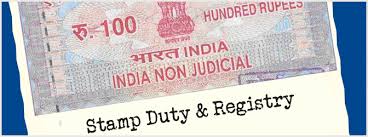S.S. Nijjar, J.@mdashThe petitioner joined the respondent No. 2 as Salesman on 13.11.1976. The services of the petitioner had been terminated by order dated 8.1.1983. On 17.4.1985, the termination was declared illegal by the labour Court, Bathinda(hereinafter referred to as the Labour Court) and he was reinstated in service with continuity of service and full back wages. The petitioner continued working with the respondent No.2 M/s Muktsar Cooperative Marketing-Cum-Processing Society Ltd. Muktsar (hereinafter referred to as the respondent-Society). His service were again terminated on 3.6.1992. the petitioner again raised an industrial dispute which was referred to the labour Court, Bathinda vide reference No. 500/1992. During the pendency of the reference before the Labour Court the petitioner reached a compromise with the respondent-Society. By this time, the Labour Court had framed the necessary issues. In view of the compromise reached between the parties, the Labour Court decided the reference as follows: -
"When the case was at the stage of evidence parties arrived at settlement out of court as a result whereof statements of workman and that of Sh. Jagdish Rai Accountant have been recorded the gist whereof is the Management has reinstated the workman w.e.f. 10.1.94 with continuity of service but without back wages.
5. Resultantly, this reference is answered as settled between the parties out of court in the manner given in preceding para. No order as to costs."
2. The compromise which had been reached between the parties, has been recorded in the resolution dated 10.1.1994 passed by the respondent-Society. The resolution reads as under: -
|
Dated |
Proceeding Committee | |
|
" 10.01.94 Resolution No. 1. To reinstate Jeet Singh, Ex-Salesman son of Sh. Bant Singh on service. |
Resolved that case no. 5500/92 of Sh. Jeet Singh, Ex-Saleman is pending in Labour Court, Bathinda, Workman has given affidavit to the Society. He is taken back on duty from today 10.01.94 forenoon and it is also resolved that the new pay scale of 1200-2100, which is implemented from 10.1.86 and according to which Gurmail Singh, Salesman and Bhajan Singh, Salesman are being paid salary, according to it from this date pay be given. He has stated that he will withdraw all the court cases. | |
|
Sd/- Manager 10.01.94 |
Sd/- Administrator 10.01.94" | |
3. The petitionerhad given an affidavit to the Management dated 7.4.1994 in which he had categorically stated that he is ready to forego the claim of arrears of wages for the period from 3.6.92 to 9.1.1994 at Rs. 524/- per month which comes to Rs. 10,078/-in favour of the Society. He thereafter asked that he may be reinstated with continuity in service from 13.11.1976 so that reference No. 50/92 pending in the Labour Court be withdrawn. In view of the above, the Labour Court answered the reference by award dated 27.5.1994, as noticed above.
4. After being reinstated, the petitioner filed an application u/s 33C(2) of the Industrial Disputes Act (hereinafter referred to as "as Act") seeking payment of wages in the revised pay scale w.e.f. 1.1.86 to 9.1.1994. The Labour Court, after considering the entire matter has rejected the application of the petitioner by the award dated 20.7.2000. This award is challenged in this writ petition filed by the petitioner under Articles 226/227 of the Constitution of India. Prayer is made for quashing the aforesaid award and for issuance of a writ of Mandamus directing the respondent No. 2 to pay the, dues to the petitioner in the revised pay scale w.e.f. 1.1.86 to 10.1.1994.
5. Mr. Sharma has submitted that the Labour Court has wrongly decided the application purely on the basis of the compromise between the parties dated 10.1.1994. He submitted that a perusal of the resolution dated 10.1.1994 clearly shows that persons similarly situated, namely, Gurmail Singh, Salesman and Bhajan Singh, Salesman have been given the benefit of revised pay scale of Rs. 1200-2100 w.e.f. 1.1.1986. The petitioner was in service at the time when the scale was revised. Therefore, he is entitled to be given the same scale as is given to Gurmail Singh and Bhajan Singh. Learned counsel further submitted that under the compromise, the petitioner had only given up the claim for wages from 3.6.92 to 9.1.1994. The petitioner cannot, therefore, be deprived of the benefits of revised pay scale from 1.1.1986 to 10.1.1994. Learned counsel has made a pointed reference to the figures wh''ich are given in the award and which have been taken from the application itself, to submit that the petitioner was entitled to sum of Rs. 1,72,569/-.
6. On the other hand, it is submitted by Mr. S.S. Bhinder appearing for respondent-Society that the petitioner was brought into a regular pay scale for the first time on the basis of the resolution dated 10.1.1994. Upto the time when his services were terminated on 3.6.1992, the petitioner was working as a daily wager. He was entitled to receive a fixed wage of Rs. 525/- per month. He farther submitted that in the resolution dated 10.1.1994, the petitioner had been equated with Gurmail Singh and Bhajan Singh for the notional fixation of the pay in the revised scale. This scale was to be released to the petitioner w.e.f. 10.1.1994. Therefore, the application of the petitioner has been rightly dismissed.
7. T have considered the submissions made by the learned counsel for the parties. It is not disputed that the petitioner had given the affidavit. In the affidavit, it is categorically stated that the petitioner was entitled to payment of Rs. 524/- per month from 3.6.92 to 9.1.94. If that is so, it would be difficult to accept the submission o Mr. Sharma that he was drawing the higher pay in revised pay scale w.e.f. 1.1.86 to 2.6.92. This admission of the petitioner is sufficient to disentitle the petitioner from claiming the revised pay scale. I am of the considered opinion that the respondent-Society had, in fact, fixed the pay of the petitioner at a rate higher than what was legally due to him. Since he was a daily wager till 10.1.94, he could not have possibly claimed payment in the regular scale. Since he was not in the regular pay scale, the question of receiving any benefit of the revised pay scale did not arise. He was put in the regular pay scale for the first lime on 10.1.1994. The respondent-Society would have been within its rights to fix the petitioner at the bottom of the pay scale on 10.1.1994. However, the respondent-Society had acted very fairly and given the petitioner notional increments at par with persons who had already been granted the regular revised pay scale w.e.f. 1.1.1986. 1 am also of the considered opinion that the Labour Court was correct in holding that the petitioner having entered into a valid compromise, cannot now be permitted to claim the benefit of revised pay scale. He had agreed to be paid in the regular pay scale. He had agreed to be paid in the regular pay scale w.e.f. 10.1.1994. The petitioner has already been paid his dues. Therefore, the application was rightly dismissed by the Labour Court.
8. In view of the above, I find no merit in the writ petition and the same is hereby dismissed. No costs.

